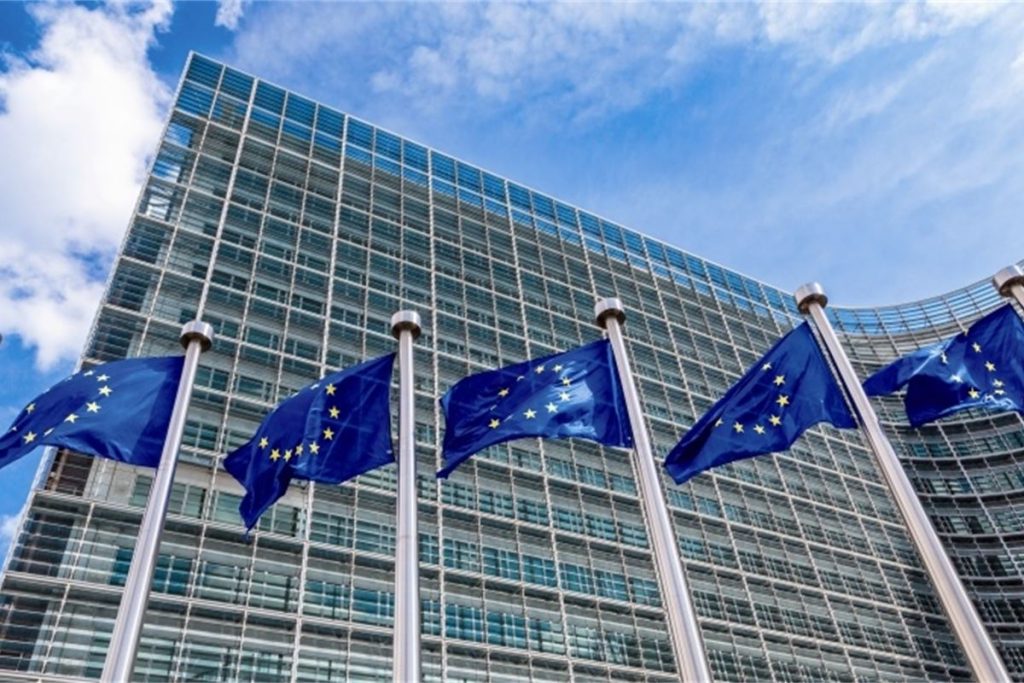Poland to Lose €320 Million in EU Funds Due to Ongoing Disputes with Brussels Over Judicial Reforms.
Poland will not receive back the €320 million in EU funds that were deducted due to ongoing disputes with Brussels regarding judicial reforms and the country's adherence to the rule of law. The General Court has ruled that the European Commission acted correctly by withholding the funds in response to Poland’s controversial judicial reforms, which have been a point of contention between Warsaw and the EU for years.
The court's decision, delivered on Wednesday, reinforced the European Commission's stance, stating, "In recovering the amounts payable, the Commission did not infringe EU law."
The dispute traces back to the nationalist Law and Justice (PiS) government’s 2015 judicial reforms, which the European Commission deemed violated the independence of Poland’s judiciary. The issue specifically revolved around the disciplinary chamber of the Polish Supreme Court, which was given powers to penalize judges based on their rulings, potentially undermining the separation of powers.
In response, the European Court of Justice imposed daily fines of €1 million, later reduced to €500,000, due to Poland’s failure to comply with an interim order to suspend the reform. These fines were imposed until 2023, after the European Court declared the judicial reform incompatible with the right to an independent judiciary.
To recover the fines, the European Commission activated its "offset mechanism," which allowed it to deduct the fines from Poland's EU budget allocation. Despite Poland’s argument that new legal concessions made in 2022 warranted a break, the General Court ruled against Poland, affirming the Commission's authority. "Inasmuch as Poland had not fully complied with its obligations, the Commission was obliged to ensure recovery of that amount in full," the judges concluded.
The Polish government under Prime Minister Donald Tusk, who took office in 2023, still has the option to appeal the ruling. Tusk has worked to reverse the judicial reforms introduced by PiS and played a critical role in securing the release of €137 billion in EU funds that were previously frozen due to these reforms.
Michael McGrath, the European Commissioner for Democracy, Justice, and the Rule of Law, emphasized the importance of consistency in applying rule-of-law principles across EU member states. He stated, “What is important is that the European Union acts in a consistent manner with all member states when it comes to rule-of-law issues, that we ourselves follow due process.” He added, “Compliance with the rule of law is not à la carte, it is not an option extra. It is a fundamental part of European Union membership.”
The ongoing struggle between Poland and the European Union over judicial independence began several years ago and has become one of the most prominent and contentious issues in the relationship between Poland and Brussels. The roots of this conflict trace back to 2015 when the right-wing nationalist Law and Justice (PiS) party, led by Jarosław Kaczyński, came to power in Poland. The PiS government initiated a series of reforms that it argued would overhaul Poland's judiciary system to make it more efficient and accountable. However, critics, including the European Union, viewed these reforms as a threat to judicial independence and the rule of law.
Key Events Leading to the Conflict:
- Judicial Reforms of 2015: The PiS government introduced a series of laws that altered the structure and operation of Poland’s judiciary. One of the most controversial elements was the creation of a disciplinary chamber within the Polish Supreme Court, which gave the government power to penalize and remove judges for their rulings. The EU and many legal experts raised concerns that this reform would undermine the independence of the judiciary and place judges under political influence.
- European Union Response: The European Commission, the EU's executive body, became increasingly concerned about these judicial reforms. In 2017, it launched an infringement procedure against Poland, arguing that the reforms violated EU laws regarding the independence of the judiciary and the rule of law, which are fundamental values of EU membership. The European Commission contended that the reforms interfered with the separation of powers, one of the core principles of democratic governance in EU member states.
- European Court of Justice (ECJ) Ruling (2019): In 2019, the European Court of Justice (ECJ) ruled that the disciplinary chamber of the Polish Supreme Court, which allowed the government to penalize judges, violated EU law. The Court issued an order for Poland to suspend the disciplinary chamber immediately. However, the Polish government initially refused to comply, leading to tensions with Brussels.
- Imposition of Fines (2021): As Poland continued to ignore the ECJ ruling, the European Commission began imposing daily fines on Poland for not complying with the court's orders. In October 2021, the European Commission started charging Poland €1 million per day in fines. The fines were linked to Poland's failure to stop the operation of the disciplinary chamber and its non-compliance with EU law regarding judicial independence.
- EU Funds at Risk: As part of its response to Poland's defiance, the European Commission activated an "offset mechanism" in which it deducted the fines directly from Poland’s EU budget allocation. The amount of money deducted grew over time, eventually totaling €320 million. Poland contested these deductions, arguing that the reforms passed in 2022 had addressed the concerns, but the EU did not agree, arguing that Poland had not made sufficient changes to meet its obligations.
- Poland’s Appeal and Court Ruling (2023-2025): Poland filed a legal appeal against the Commission's decision to deduct the funds. In the appeal, Poland claimed that its new judicial reforms, passed in 2022, addressed the concerns raised by the EU, and therefore the fines and deductions should be revoked. However, the General Court of the EU upheld the Commission's decision, ruling that Poland had not fully complied with its obligations. The court confirmed that the European Commission was justified in using the offset mechanism and deducting the €320 million from Poland’s EU funds.
- The EU’s Approach to Rule of Law: The EU has long emphasized the importance of judicial independence and the rule of law within its member states, seeing these principles as foundational to the functioning of the Union. The EU’s legal actions against Poland are part of a broader effort to hold member states accountable for adhering to these principles. The EU’s insistence on judicial independence is not only a matter of legal conformity but also a political and moral stance, reinforcing the Union’s commitment to democratic values.
UK Foreign Secretary David Lammy Announces New Financial Aid Package for Ukraine





















